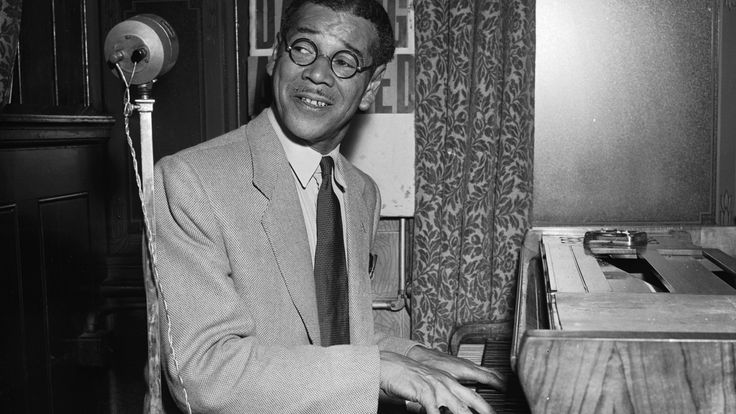Jack London features in our Hidden Figures series, bringing to life the stories of under-the-radar sporting pioneers throughout Black History Month

Tuesday 27 October 2020 11:45, UK
"Only think of two things: the gun and the tape. When you hear one, run like hell until you break the other."
That was the coaching advice given to sprinter Jack London, who until recently, had been widely credited as Britain's first black Olympian after competing at the Amsterdam Games in 1928.
As revealed in our Hidden Figures series, London was actually pipped to that accolade eight years prior by Harry Edward in 1920 but London's success remains relatively unacknowledged.
Born John Edward London in British Guyana in 1905, his family moved to London when he was young so his father - a teacher and church minister - could study medicine.
The family eventually returned to South America but London had fallen in love with the city with which he shared a name and decided to move back. He studied at Regent Street Polytechnic - predecessor to the University of Westminster - where he joined their running team, the Harriers (the same team where Harry Edward began his athletics career).
London was spotted training at Chiswick's Polytechnic Stadium by renowned coach Sam Mussabini, who guided athletes to 11 Olympic medals in total, including Harold Abrahams to gold at Paris 1924 (depicted in 1981 film Chariots of Fire).
At a time when amateur athletics was celebrated and professionalism discouraged, Mussabini was one of the first paid track-and-field coaches. His progressive training regimes would not look out of place today - using film to help athletes improve their technique and studying the impact of diet on performance.
Under his guidance, London went from strength to strength - he was made Harriers' track captain in 1922 (and was also the club's leading high-jumper) and in 1927, clocked 10.7s in the 100m - a British record and a whisker off the world record.
Despite Mussabini's untimely death a year earlier, London was in fine form at the 1928 Amsterdam Games, equalling the Olympic record of 10.6s in the 100m semi-final and securing silver in the final. He also won bronze in the 4x100m relay.
London also wrote himself into the history books after becoming the first athlete to use starting blocks at an Olympics, instead of digging footholes into the cinder running tracks.
More success followed in July 1929 when London became the first British sprinter to win the Amateur Athletics Association's 100m title since Abrahams in 1924. He hoped to add gold to his medal collection at Los Angeles 1932 but a leg injury curtailed his career, and he was forced into retirement in 1931.
Turning his attention to the world of entertainment, London starred as a pianist in the original cast of Noel Coward's musical Cavalcade at the Theatre Royal in 1931, also appearing in the 1938 comedy Old Bones of the River. He also co-wrote a coaching manual in 1948 called The Way to Win on Track and Field. He later worked as a hospital porter at London's St Pancras Hospital.
London died suddenly of a stroke in 1966, aged 61, with his achievements largely unrecognised until his Olympic medals made headlines last year when his great niece put them up for sale at auction, along with two relay batons from Amsterdam 1928 and the 1930 Empire Games.
The collection sold for £8,000, more than double their estimated value - a fitting recognition for an athlete described by his former university as "a sprinter of the highest class" who helped paved the way for future black British Olympians.
Keep across all our features, news stories and video content on Sky Sports News and our Sky Sports platforms. Check out the latest Black History Month content here